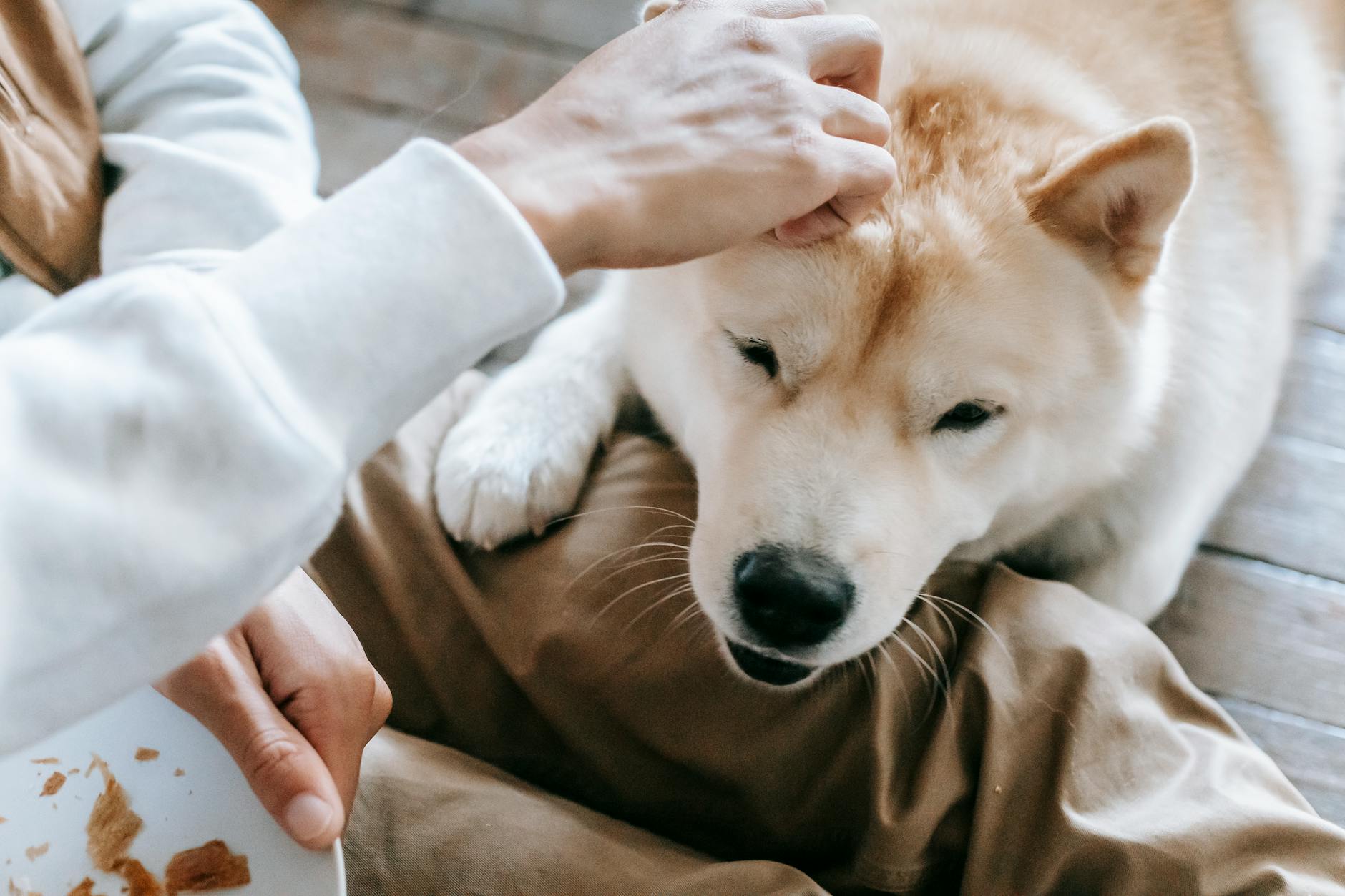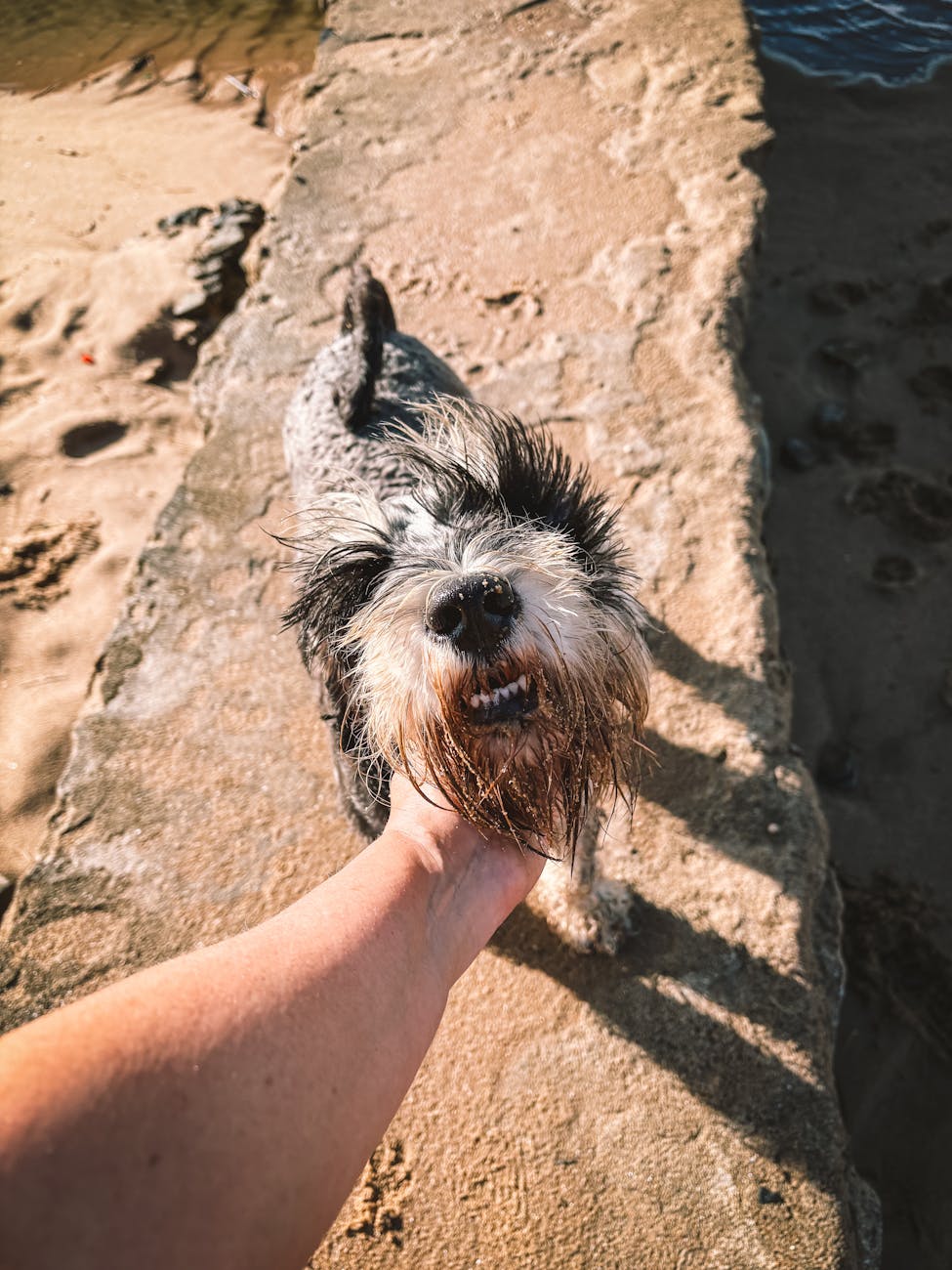Balancing Work and Furry Friends: A Guide to Doggy Daycare, Walkers, and Happy Hounds
Remember that heart-wrenching scene from "Marley & Me" where John Grogan had to leave Marley alone for the first time? The guilt, the worry, the silent plea in those puppy-dog eyes – it's a feeling every dog owner knows all too well. Balancing work and dog care presents a unique set of challenges, from ensuring they get enough exercise and attention to managing potential separation anxiety. It's tough returning to the office after spending more time at home with your canine companion.

Leaving for work and wondering how to balance your professional life with your canine companion's needs?
But don't despair! It's entirely possible to navigate this transition and ensure your dog remains happy, healthy, and well-cared for while you're at work. This guide provides practical solutions for ensuring your dog's happiness and well-being while you're away, covering everything from doggy daycare and walkers to creating a comfortable and stimulating home environment. Let's dive in and discover how to make the work-life-dog balance a reality.
Understanding Your Dog's Unique Needs
Before choosing the best care options, it's crucial to understand your dog's individual needs. Every dog is different, and what works for one might not work for another. Consider these factors:
Assessing Personality and Energy Levels: A Border Collie needs significantly more exercise than a Basset Hound, right? Consider your dog's breed and inherent energy levels. High-energy breeds thrive on activity and need ample opportunities to burn off steam. Low-energy breeds are often content with shorter walks and more cuddle time. Is your dog a social butterfly who loves playing with other dogs, or are they more of a homebody who prefers human companionship? Understanding their socialization preferences will help you determine if doggy daycare is a good fit. For example, a shy Shiba Inu might find a large, boisterous daycare overwhelming, while a playful Labrador would thrive. Does your dog bark excessively, chew furniture, or have accidents when left alone? These could be signs of separation anxiety. Addressing this issue is crucial for their well-being and your peace of mind.
Daily Routine Considerations: Puppies need more frequent potty breaks than adult dogs. Consider how long your dog can comfortably hold it and plan accordingly. How much exercise does your dog need to stay happy and healthy? A brisk walk around the block might suffice for some, while others require a long run or a vigorous play session. Don't forget mental stimulation! Dogs need mental enrichment just as much as physical exercise. Puzzle toys, training sessions, and even a simple game of fetch can help keep their minds engaged and prevent boredom.
Doggy Daycare: Is It Right for Your Furry Friend?
Doggy daycare can be a fantastic option for social dogs with plenty of energy to burn. It provides a structured environment where they can play, socialize, and receive attention while you're at work.
Benefits of Doggy Daycare:
Daycare provides a safe and supervised environment for dogs to interact with their peers, improving their social skills and reducing the risk of behavioral problems. It offers ample opportunities for exercise and play, helping to burn off excess energy and prevent boredom. A busy day at daycare can help alleviate boredom and anxiety, especially for dogs prone to separation anxiety.
Choosing the Right Daycare:
Ensure the daycare is properly accredited and licensed, indicating they meet certain standards of care and safety. A low staff-to-dog ratio ensures that each dog receives adequate attention and supervision. The daycare should have strict cleanliness and safety protocols in place to prevent the spread of disease and ensure the well-being of all dogs. Look for evidence of regular cleaning and disinfection. Maintaining a clean environment is crucial for preventing the spread of common canine illnesses.
Visit the daycare during operating hours to observe the dogs and staff. Are the dogs happy and engaged? Is the staff attentive and caring?
Preparing Your Dog for Daycare:
Start with short trial runs to acclimate your dog to the daycare environment gradually. Ensure your dog is up-to-date on all required vaccinations to protect them and other dogs at the daycare. Pack a bag with your dog's food, any necessary medications, and a favorite toy or blanket for comfort.
Dog Walkers: A Personalized Approach to Pet Care
For dogs who prefer individual attention or need more specialized care, a dog walker can be an excellent option.
Advantages of Hiring a Dog Walker:
Dog walkers provide one-on-one attention, catering to your dog's specific needs and preferences. They offer flexible scheduling options, allowing you to customize their services to fit your work schedule. Dog walkers ensure your dog gets regular potty breaks and exercise, even when you're not home.
Finding a Reputable Dog Walker:
Choose a dog walker who has undergone a background check and is properly insured to protect you and your dog in case of accidents or injuries. Ask for references and read online reviews to get a sense of the dog walker's reputation and reliability. Schedule an initial consultation to meet the dog walker, discuss your dog's needs, and ensure they are a good fit.
Communicating Your Dog's Needs:
Communicate your dog's walking preferences, such as preferred routes, pace, and any areas to avoid. Inform the dog walker of any health concerns or medications your dog may have. Provide the dog walker with your emergency contact information and your veterinarian's contact information.
Creating a Comfortable Home Environment for Your Dog
Even with daycare or a dog walker, creating a comfortable and stimulating home environment is essential for your dog's well-being.
Designated Dog Zone:
Provide a comfortable bed or crate where your dog can relax and feel safe. Leave out a variety of toys and enrichment activities to keep your dog entertained while you're away. Ensure your home is safe and secure, with no access to potentially harmful substances or objects.
Maintaining Hygiene:
Regularly cleaning your dog's belongings is essential for their health. This includes washing their bed, toys, and bowls to eliminate bacteria and prevent the spread of infections.
Interactive Toys and Puzzles:
Interactive toys and puzzles challenge your dog mentally, preventing boredom and destructive behavior. A bored dog is more likely to engage in destructive behavior, such as chewing furniture or digging in the trash. Consider a Kong filled with peanut butter, a puzzle feeder that dispenses treats when manipulated, or a snuffle mat where you can hide kibble for your dog to find. These toys engage their natural foraging instincts and provide mental stimulation. For example, the Outward Hound Hide-A-Squirrel Plush Puzzle Toy keeps dogs entertained as they try to remove the squirrels from the plush tree trunk.

Engage your dog's natural foraging instincts with interactive toys and puzzles, like the Outward Hound Hide-A-Squirrel Plush Puzzle Toy, keeping them entertained and preventing boredom while you're away.
Remote Monitoring Options:
Pet cameras allow you to check in on your dog remotely, providing peace of mind and allowing you to address any issues that may arise. Some pet cameras offer two-way communication, allowing you to talk to your dog and reassure them while you're away.
Addressing Common Concerns
Separation Anxiety:
Common signs of separation anxiety include excessive barking, chewing, pacing, and accidents. Desensitization techniques involve gradually exposing your dog to being alone, starting with short periods and gradually increasing the duration. Another helpful strategy is to create a "safe space" for your dog, such as a crate or bed, where they feel secure and comfortable. You can also try leaving them with a worn t-shirt that smells like you. If your dog's separation anxiety is severe, consult a veterinarian or behaviorist for professional guidance.
Destructive Behavior:
Destructive behavior is often a sign of boredom or anxiety. Ensure your dog has plenty of opportunities for exercise and mental stimulation. Provide them with appropriate chew toys and rotate them regularly to keep them interested. If the behavior persists, consult a trainer or behaviorist to identify the underlying cause and develop a training plan.
Allergies:
Dogs can suffer from food allergies, environmental allergies, or flea allergies. Common symptoms include itching, skin rashes, ear infections, and digestive upset. Work with your veterinarian to identify the allergen and develop a management plan, which may include dietary changes, medication, or allergy shots.
Cost Considerations:
Daycare and dog walkers have different pricing structures. Consider your budget and your dog's needs when making your decision. Factor in the cost of daycare, dog walkers, food, toys, and veterinary care when creating your budget.
Time Management Tips:
Plan your dog's care schedule in advance to avoid last-minute stress. Utilize technology, such as online scheduling tools and pet cameras, to streamline your dog care routine.
Conclusion
Balancing work and dog care requires careful planning, consideration, and a commitment to your furry friend's well-being. By understanding your dog's unique needs, exploring different care options, and creating a comfortable home environment, you can ensure they remain happy, healthy, and well-cared for while you're at work. Remember to prioritize their physical and mental health, and don't hesitate to seek professional help if needed. Responsible pet ownership is a lifelong commitment, but the unconditional love and companionship you receive in return are well worth the effort.
Now it's your turn! Implement these tips and share your experiences in the comments below. What strategies have worked best for you in balancing work and dog care? Let's build a community of supportive pet lovers who are dedicated to providing the best possible lives for their canine companions.
Please visit silver cleapet website for more information: Silver Cleapet
Check out my other blog post: The Unbreakable Bond: Coping with the Loss of a Soul Dog and Opening Your Heart Again
Written by: Michael Besneli









Comments
Post a Comment